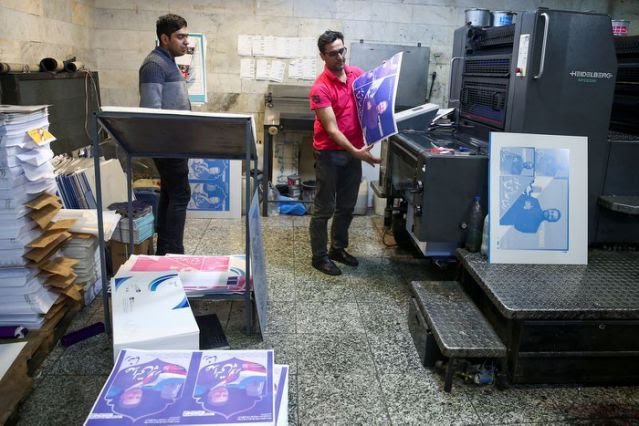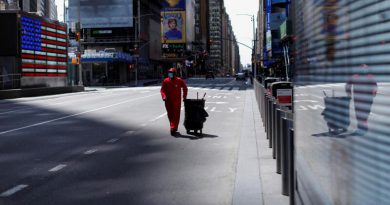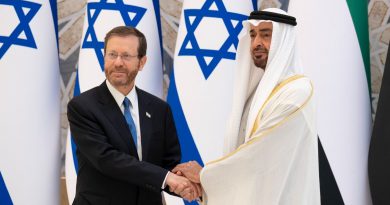Factbox: Choices curtailed – Iran’s parliamentary election
Dubai (Reuters) – Iranians vote on Friday in a parliamentary election likely to reinforce Supreme Leader Ayatollah Ali Khamenei’s authority, as the country faces mounting U.S. pressure over its nuclear program and growing discontent at home.
Pro-reform and leading conservative hopefuls were barred from standing by a hardline watchdog body, the Guardian Council, permitting voters a choice only between hardline and low-key conservatives loyal to Khamenei.
Like hardliners, conservatives back the ruling theocracy, but unlike them support more engagement with the outside world.
Moderates and pragmatists seeking greater political and social freedoms have mostly been barred from standing.
Following are some facts about Iran’s 11th parliamentary election since the 1979 Islamic revolution:
Candidates Vetted
Candidates were screened by government-run committees and then the Guardian Council, a conservative body of clerics and jurists who check hopefuls for their commitment to Islam, their belief in the Velayat-e Faqih (religious system of law) and the Islamic Republic.
After the vetting process, some 7,150 candidates were allowed to run out of more than 16,000 who originally signed up. A third of sitting lawmakers were barred from standing again.
Moderates, who see disqualifications as an attempt by hardliners to dominate the 2021 presidential race, had no candidates to compete for 230 of the 290 seats of the assembly.
Political Parties, Coalitions and Factions
Iran has 82 national political parties and 34 provincial parties, the interior ministry says. But the Islamic Republic lacks a tradition of disciplined party membership or detailed party platforms, and politics runs along factional lines.
Two main hardline groups and one conservative coalition emerged after months of haggling. Some candidates are backed by more than one group.
Coalition Of Islamic Revolution Forces: The biggest hardline group, which includes former members of the elite Revolutionary Guards and their affiliated Basij militia as well as other loyalists of Khamenei. This group is expected to dominate the assembly.
Principalists: These are conservatives, who label themselves “principle-oriented” politicians for their loyalty to the ideals of the Islamic Republic and Khamenei but differ from hardliners in being less hostile toward the West.
Front Of Islamic Revolution Stability: A political group seen as the extreme end of the Islamic fundamentalist camp. It is affiliated to one of the most radical figures in the Iranian religious establishment, Ayatollah Mohammad Taqi Mesbah-Yazdi.
Executives Of The Construction Of Iran: Composed of technocrats who support the Islamic Republic’s ideals but who also want social and political change. Their hope of having a significant voice in parliament was dashed by the vetting process, leaving their leading candidates unable to run. Along with some low-key moderate parties, they have a list of 30 candidates for Tehran.
Although such groups may play a bigger role in cities, the decisive factors for candidates in smaller towns and provincial areas are their reputation and ability to make personal contact with voters.
Iran’s constitution mandates five reserved seats in parliament for religious minorities.
The Vote and the Result
Polling opens at 0430 GMT and ends at 1430 GMT, but can be extended until 2030 GMT (midnight local).
There are about 58 million eligible voters, who must be over 18 years, in the country of 83 million people.
All ballots will be counted manually, so the final result may not be announced for three days, although partial results may appear sooner.



